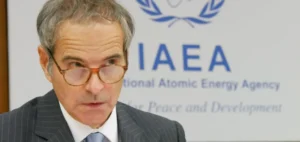Sweden’s parliament has voted in favour of legislation allowing uranium exploration and extraction starting on 1 January 2026, ending the ban that had been in place since 2018. Uranium is now classified as a “concession mineral”, subject to Sweden’s standard mining permit system. The new law also removes permit requirements for activities involving small quantities of uranium and eliminates the right of municipal veto.
A strategic shift within the mining code
Inclusion of uranium under the Minerals Act enables mining companies to treat it as a commercially viable resource, comparable to other critical raw materials. Australian company Aura Energy, owner of the Häggån polymetallic project containing vanadium, potassium and uranium, welcomed the decision. The company had published a preliminary study in 2023 with economic projections constrained by the previous legislation. It now plans to reassess its investment strategy, factoring in the economic value of uranium.
“This decision gives uranium the potential to contribute to national energy security,” said Aura Energy’s Executive Chairman. He also noted that Sweden holds approximately 27% of Europe’s known uranium deposits, which could significantly increase the value of domestic mining projects.
Canadian operators respond and expand exploration programmes
Canada-based District Metals Corp, active in Sweden through its Viken project, also confirmed growing interest triggered by the reform. The deposit is estimated to contain approximately 577,000 tonnes of uranium (U3O8), alongside other critical resources such as vanadium, nickel and copper. The company’s Chief Executive stated that recent updates to its resource estimate were conducted in anticipation of the legislative change.
District Metals plans to intensify its exploration efforts starting in 2026, with fieldwork, further airborne geophysics, drilling, and a new economic study of the Viken deposit. Removal of the municipal veto and a clearer permitting regime are expected to ease project planning and development, according to the company.
Economic leverage amid geopolitical and energy uncertainty
The reform comes as Sweden reevaluates the role of nuclear energy in its overall energy mix. Several mining sector stakeholders believe that exploiting national uranium reserves could reduce dependence on imports and support Sweden’s goal to triple its nuclear capacity. The updated regulatory framework may also attract new investment into a sector previously sidelined by legal constraints.
Discussions on unlocking Sweden’s mineral potential are ongoing as the government considers a broader strategy for securing access to critical raw materials. Including uranium in this strategy marks a key step for polymetallic projects seeking higher profitability through full resource extraction.






















